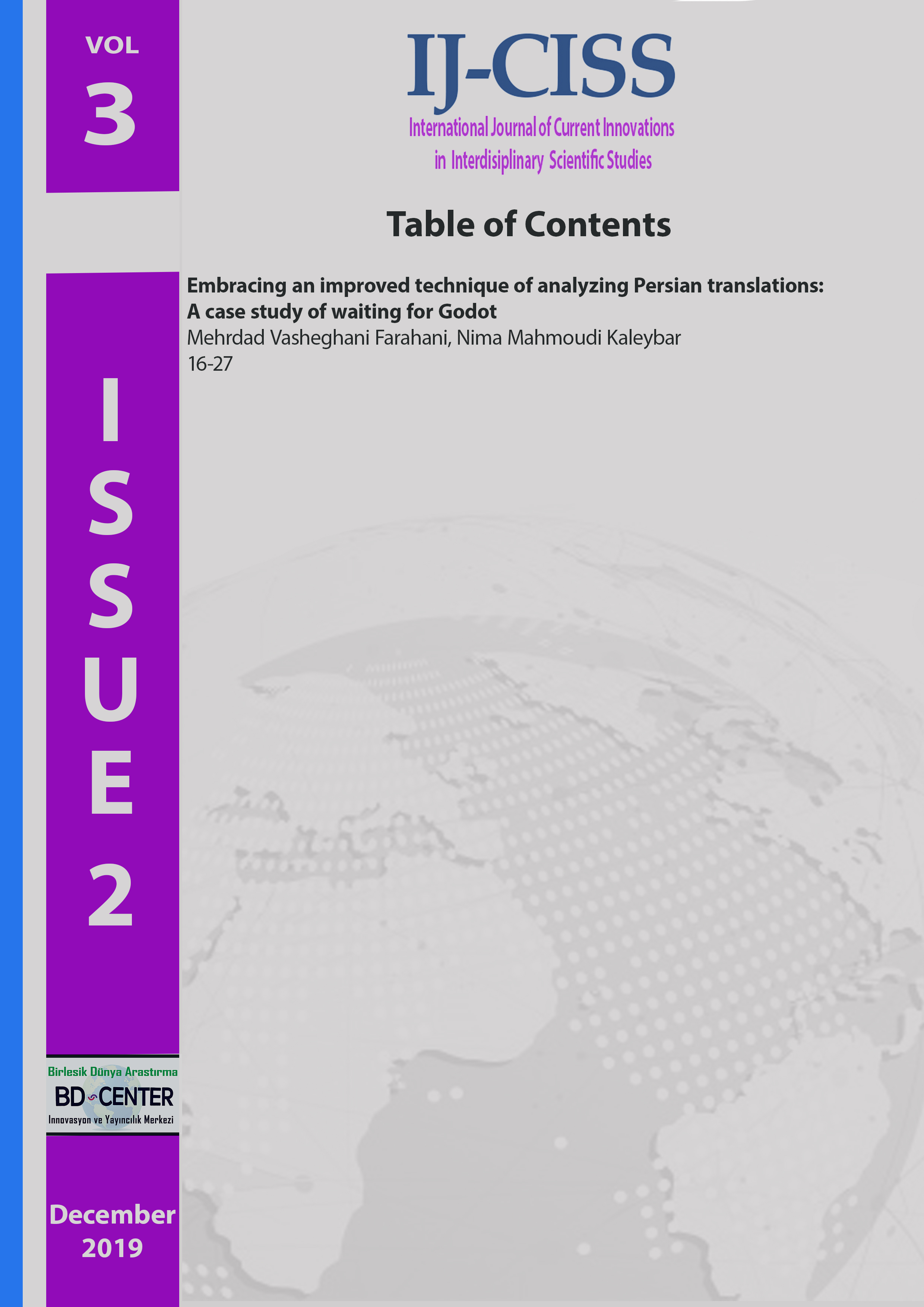Embracing an improved technique of analyzing Persian translations A case study of waiting for Godot
Main Article Content
Abstract
The purpose of this research was to analyze Samuel Beckett’s Waiting for Godot along with its Persian translation, in terms of Venuti’s dichotomy of domestication and foreignization. The allusion samples were selected through the whole book and then the translations of the allusions were analyzed according to Venuti’s framework. It was found that foreignization happened mainly when there was a proper name (PN) in the item which was translated. Items without PN were mostly foreignized. These findings will help literary translators have a better understanding of such plays. This research is an innovation in the method of analyzing translations, in that, it compares the source text with the translated text. This method of analyzing translations is scarce especially in the Persian language. Taken that the translators would stick to the findings of this research, the readers will be able to have an expressive translation of the play rather than an informative piece of translation. In addition, the findings in this research along with some other researches can be an aid in both empirical and theoretical studies.

